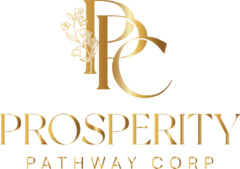As you approach retirement, managing your cash flow becomes even more important. With a fixed income and limited ability to earn additional income, it’s crucial to make the most of your savings and investments to ensure financial stability in retirement.
Here are some tips for managing cash flow in retirement:
Create a budget: Creating a budget can help you stay on track with your expenses and ensure that you’re not overspending. Start by tracking your expenses for a few months to get a sense of your regular spending patterns. Then, create a budget that accounts for your fixed expenses, such as housing and healthcare costs, and your discretionary expenses, such as entertainment and travel.
Consider your income sources: In retirement, your income sources may include CPP, cash savings and withdrawals from your retirement accounts. It’s important to understand how each of these income sources works and how they can impact your taxes and cash flow.
Minimize debt: If you have any outstanding debt, such as credit card debt or a mortgage, consider paying it off as soon as possible. This can help reduce your monthly expenses and free up more cash flow for other expenses.
Consider downsizing: If you’re struggling to make ends meet in retirement, consider downsizing your home or making other lifestyle adjustments to reduce your expenses.
Be mindful of taxes: Depending on your income sources, you may be subject to taxes on your Social Security benefits, pension income, and retirement account withdrawals. It’s important to understand how these taxes work and to plan accordingly to minimize your tax liability.
Consider working part-time: If you’re able and interested in working part-time in retirement, it can provide an additional source of income and help supplement your savings and investments.
Seek professional advice: Working with a financial advisor or planner can help you navigate the complexities of cash flow management in retirement. They can help you create a plan that aligns with your goals and can provide guidance on investment strategies and tax planning.
In conclusion, cash flow management is an essential part of financial stability in retirement. By creating a budget, considering your income sources, minimizing debt, and seeking professional advice, you can ensure that you’re making the most of your savings and investments and enjoying a comfortable retirement.

